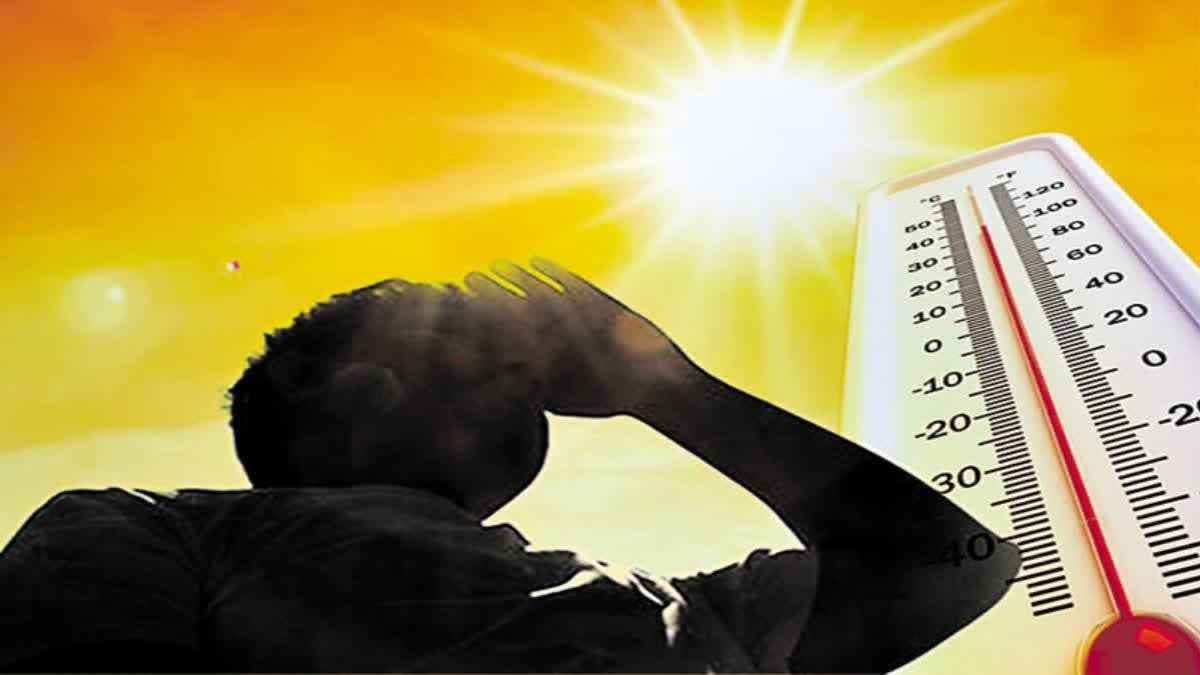New Delhi: In a historic and alarming milestone, 2024 has officially been declared the hottest year on record, surpassing the previous high set in 2023. This unprecedented temperature rise underscores the intensifying impacts of climate change, threatening ecosystems, economies, and public health globally.
The Growing Climate Crisis
Professor SN Mishra, a visiting professor at TERI SAS and a leading climate change expert, shared his thoughts with ETV Bharat about the current trajectory of global warming saying it is an existential crisis.
He explained, “Unchecked greenhouse gas (GHG) emissions are driving us towards catastrophic outcomes. Despite the Paris Agreement’s goal to limit global warming to 1.5°C, projections indicate we might breach this critical threshold as early as 2030."
Indeed, the relentless rise in temperatures has set off a cascade of extreme weather events. Mishra elaborated on the devastating toll:
- South Lhonak, Sikkim (2023): A Glacial Lake Outburst Flood (GLOF) claimed hundreds of lives
- Dubai: Unprecedented flooding occurred twice in the same year
- India: Severe heatwaves led to multiple fatalities in Northwest and Central India
- Mecca: Over 1,000 deaths were reported due to heatstroke
Closer to home, the Indian Meteorological Department (IMD) reported that November 2024 was the second warmest in 123 years, with an average temperature of 29.37°C—0.62°C above normal. This prolonged warm spell has even delayed the arrival of winter, raising concerns about what the coming months may hold.
Economic and Social Impacts
The economic toll of extreme weather is staggering. The UN Economic and Social Commission for Asia and the Pacific (ESCAP) reported that India suffered $87 billion in economic losses from extreme weather events in 2021. This figure rose dramatically in 2022, with an estimated 8% GDP loss attributed to climate change impacts. Globally, the economic losses from extreme weather reached $1.5 trillion in 2022, alongside immeasurable social costs, including loss of lives and livelihoods.
Manu Singh, an environmental expert, highlighted the broader implications of climate change, stating: "Beyond economic damage, the health consequences are severe. Rising temperatures exacerbate respiratory issues like asthma and COPD, increase waterborne diseases, and reduce the nutritional quality of food. Moreover, warmer climates have amplified the spread of vector-borne diseases like dengue, cerebral malaria, and Japanese encephalitis."
A Strain on Human Resilience
The toll on mental and physical health is another dimension of the crisis. Singh emphasised the psychological effects of living in a climate-stressed world. He said, “Erratic weather conditions, extreme heat, incessant rain, and the looming threat of disasters, lead to trauma, depression, and post-traumatic stress disorder (PTSD). Communities recovering from cyclones or flash floods often find themselves in long-term distress."
Dr. Ahmed, based in Delhi, pointed out the tangible effects of this year's heat. He said, "This December feels nothing like winter. Temperatures are two to three degrees higher than usual. Fans are still being used at night, a stark reminder of how global warming is altering our daily lives. Much of this is driven by vehicular emissions and unchecked industrialisation. Hybrid cars should be mandatory by now, but progress is slow. If traffic-heavy cities like Delhi adopted hybrid technology, emissions could be reduced by up to 70% during peak hours.”
